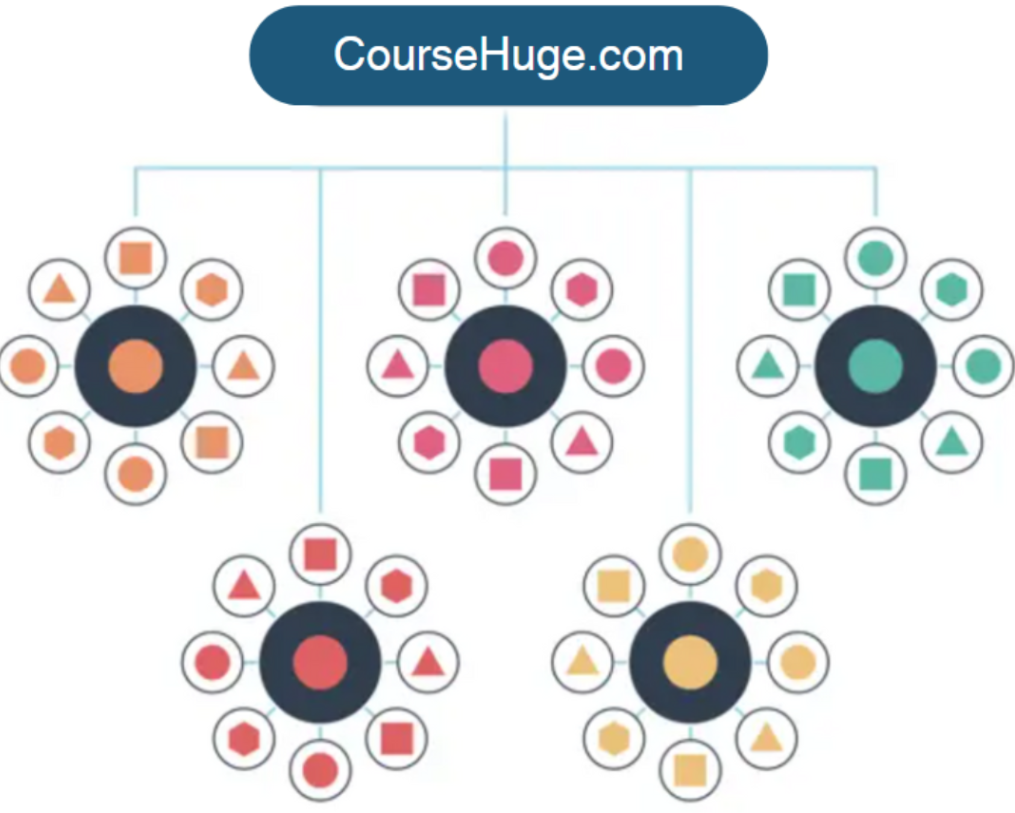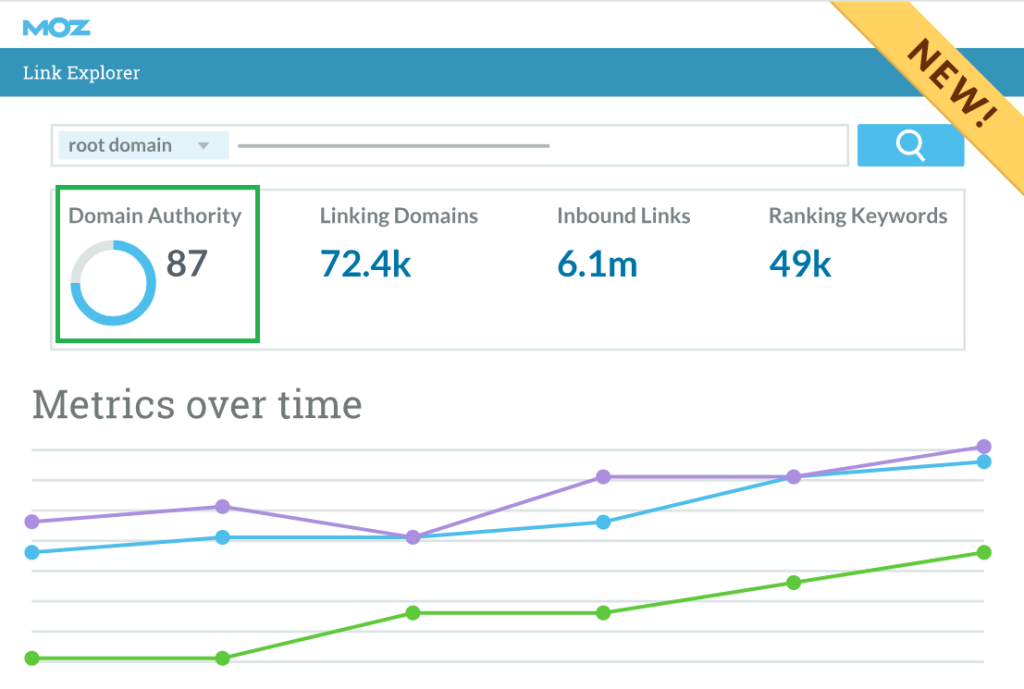SEO
Mastering Topical Authority: Boost SEO Rankings in 2023
Highlight:
- Topical Authority is the Future: It’s not just about using the right keywords anymore. Being seen as an expert on a topic is crucial for online success.
- Deep and Detailed Content Wins: Short, vague articles won’t cut it. Dive deep into topics and provide readers with all the information they need.
- Engage and Listen to Your Audience: Feedback from readers can offer valuable insights. Engage with them, answer their questions, and use their feedback to improve.
- Stay Updated and Keep Learning: The online world changes fast. You need to keep learning and updating your content to stay on top.
1. Introduction:

SEO is changing big time. In the past, using lots of keywords could get you to the top of search results.
But in 2023, it’s all about being an expert on a topic, which we call “topical authority.”
So, why is this happening? And how can all kinds of businesses use this new way to get better SEO results? Let’s dive in and find out how this new approach works.
2. Understanding Topical Authority
SEO is changing. Instead of just using keywords, it’s about being an expert on a topic. Let’s dive deeper.
2.1. What is Topical Authority?
Topical authority means you’re like an expert on a certain topic. Imagine if you’re talking about baking cakes. It’s not enough to say, “I know how to bake a chocolate cake.” You should explain:
- The best ingredients
- The right oven temperature,
- Why certain steps are important
- History of chocolate cakes.
It’s like being the person everyone goes to with questions about cakes. And it’s not just about saying “chocolate cake” in your writing. It’s about giving readers everything they want to know about it. That’s what makes you have topical authority.
2.2. Topical Authority vs. Domain Authority

Domain Authority:
This is like a website’s overall trust score. It’s given by a company called Moz. They look at many things, but a big one is backlinks. Backlinks are when other websites link to yours. Think of it as a thumbs-up from them. The more quality thumbs-ups you get, the better your domain authority.

Topical Authority:
This is about being knowledgeable about a certain topic on your website. It’s about more than just mentioning a topic a lot. It’s about giving deep, helpful information on that topic.
So, if you have a website about plants that covers everything there is to know about a certain plant, then you have topical authority.
2.3. SEO is shifting from Keywords to Topics
In the past, SEO was all about using the right keywords. Websites sprinkle specific words throughout their content, hoping to rank higher on search engines. But things are changing. It’s more about understanding and covering a whole topic in depth.
Why this change? Well, search engines like Google have one main goal: to give users the best and most relevant answers to their questions. According to a report from Blogging Wizard organic search accounts for 53.3% of all web traffic. This means that over half of the internet users seek specific information or answers. And 53% of consumers in the US research products on a search engine before making a purchase decision.

So, instead of just looking for keywords, search engines are now looking for content that provides complete and valuable information about a topic. This ensures that when someone searches for something, they get the best possible answer, not just a page with the right words.
In simple terms, it’s like if you asked someone for directions to the nearest coffee shop, and instead of just pointing in a direction, they gave you a detailed route, told you about the best drinks there, and even shared a fun fact about coffee. That’s what search engines want to offer their users: detailed, helpful answers.
2.4. What is Semantic Search?
Semantic search is a fancy way of saying that search engines are getting smarter. They don’t just look for matching keywords anymore. Instead, they try to understand what the user wants to know.
For example, if someone types “how to care for a new puppy” into a search engine, the engine won’t just look for articles with those exact words. It will also show results about: puppy vaccinations, feeding schedules, and training tips. The search engine understands that someone with a new puppy might need all this information.
That’s why covering a topic thoroughly and being seen as an authority is important. The better and more complete your information is, the more likely search engines will show it to people.
2.5. Why Is Topical Authority Important for SEO?:
Topical authority is about being recognized as an expert on a specific subject. It’s not just about having a few articles on a topic; it’s about offering comprehensive, in-depth, and valuable information that positions your website as the go-to source. Here is how it important:
- Sustainable Content Strategy: Establishing topical authority ensures a long-term and resilient content approach, making your website a reliable information hub.
- Improved Rankings and Traffic: The more knowledgeable your site is on a topic, the higher the likelihood of ranking in SERPs for related queries. This authority can propel even newer websites to Google’s first page.
- Credibility and Conversions: As your site becomes synonymous with specific keywords, it boosts organic traffic and enhances credibility, leading to better conversions.
- E-E-A-T and Google: Embracing topical authority aligns with Google’s E-E-A-T principle, which stands for Experience, Expertise, Authoritativeness, and Trustworthiness. While not a direct ranking factor, adhering to E-E-A-T can significantly influence your site’s rankings. Google’s Search Quality Rater Guidelines emphasize: [(1) Expertise of the content creator (2) Authoritativeness of the creator, content, and website. (3) Trustworthiness of the creator, content, and website].
Benefits of Achieving Topical Authority:
- Organic Traffic Boost: High authority content naturally attracts more visitors.
- Quality Backlinks: Other sites are more likely to link to authoritative content.
- Enhanced Conversions: Trustworthy content can lead to increased revenue.
- Brand Trust and Credibility: Being seen as an expert elevates your brand’s reputation.
- Competitive Edge: You can rank higher for competitive topics and keywords.
- Social Media Shares: Authoritative content is more likely to be shared, amplifying its reach.
- Better Site Organization: Focusing clearly on topics, your site becomes more navigable and user-friendly.
In conclusion, topical authority is key. It’s not just about SEO; it’s about being the trusted go-to source in your field. With it, brands stand out and stay ahead online.
3. How to Build Topical Authority: A Step by Step Guide

Step 1: Topic Selection:
- Brainstorm topics relevant to your audience.
- Ensure the topic is narrow enough and broad enough.
- Use tools like Google Trends to gauge interest in the topic.
Example: If you run a tech blog, a good topic could be “Smart Home Devices” rather than “Smart Thermostats.”
Read more our in-depth guide about Niche Seletion: Niche Selection 101
Step 2: Conduct Detailed Keyword Research
- Use keyword tools like Ahrefs, SEMrush, or Ubersuggest.
- Identify primary and secondary keywords.
- Note down related questions or long-tail keywords.
Example: For the topic “Smart Home Devices,” primary keywords might include “best smart home devices,” while secondary keywords could be “smart lights,” “smart security systems,” etc.
Step 3: Plan Your Content Breadth
- List down all the subtopics under your main topic.
- Prioritize them based on search volume or relevance to your audience.
- Ensure a mix of both broad and specific subtopics.
Example: Subtopics for “Smart Home Devices” could be “Smart Lighting Solutions,” “Voice-activated Devices,” “Smart Security Cameras,” etc.
Step 4: Find Subtopics for Content Depth
- Choose one subtopic to start with.
- Research extensively, noting down important points, facts, and figures.
- Ensure a thorough coverage of the subtopic.
Example: If you choose “Smart Lighting Solutions,” discuss different brands, benefits, installation procedures, costs, and user reviews.
Step 5: Write High-Quality, Valuable Content
Step-by-Step:
- Start with a compelling introduction.
- Use subheadings, bullet points, and short paragraphs.
- Include relevant images, infographics, or videos.
- Conclude with a call-to-action or summary.
Example: For the “Smart Lighting Solutions” article, use real-life images of homes using intelligent lights, add an infographic on energy savings, and conclude with a guide on choosing the right smart light for different rooms.
Step 6: Implement Strategic Internal Linking
- Identify related articles on your website.
- Use anchor texts naturally within your content to link to these articles.
- Ensure the linked articles are relevant and add value to the reader.
Example: In the “Smart Lighting Solutions” article, you can link to another article titled “How to Install Smart Lights in Your Home.”
Step 7: Update and Refresh Your Content Regularly
- Review your articles every few months.
- Check for outdated information, broken links, or changes in data.
- Update the content and, if necessary, republish with a current date.
Example: If a new brand of intelligent lights becomes popular in 2024, update your “Smart Lighting Solutions” article to include this brand, its features, and benefits.
After finish, you can use mindmap tools like: Xmind.app (for both PC & Math) to draw your Topical Authority Map like this:

In Conclusion, building topical authority is a systematic process. By following these 7 steps you can provide immense value to your readers, establish trust, and position yourself as an expert in your chosen domain.
4. Case Study: Succeeding with Topical Authority
Project Highlight: 1100% Organic Traffic Boost for Interingilizce.com in Just 5 Months
4.1. The Starting Point

Imagine a shop open for two years but with few products or visitors. That was the story of Interingilizce.com.
Despite being around for two years, the website was like an empty store with no visitors.

4.2. The Goal
Turn this empty online store into a bustling hub full of helpful stuff, ensuring loads of people visit and find what they want.
4.3. What They Did
- Filled the Store: Started adding valuable content to the website, much like filling up empty shelves in a store.
- Made It Friendly: Ensured that everything was easy for visitors to find and understand.
- Spread the Word: By using innovative online strategies, let people know about the great content on Interingilizce.com.
4.4. The Amazing Turnaround
In just 5 months, the number of people visiting the site grew massively.
It was like going from 10 people visiting our shop every day to a huge crowd of 2000 people! That’s a massive 1100% increase.
4.5. Some Cool Comparisons
May 2020 vs. November 2020: Think of it as having 10 visitors in May and over 2000 visitors by November.
Last 3 Months: Picture a steady stream of people walking into the store daily, with the line getting longer each month.

Latest 6 Months: Imagine drawing a line showing more and more visitors coming in over six months. That line goes up and up!

Interingilizce.com went from an empty, quiet place to a busy, popular spot on the internet. They brought in loads of visitors by adding great content and making sure people knew about it.
This shows that any website can become popular and busy with the proper steps!
5. Tools and Resources to Boost Topical Authority
Building topical authority is easier when you have the right tools and resources. Here’s a list to get you started.
5.1. Tools to Topic Research
- Keyword Tools: These help you find out what terms people are searching for related to your topic. Google Keyword Planner and SEMrush are top choices.
- Trending Topic Tools: Find out what’s currently popular in your niche. Google Trends and BuzzSumo are great for this.
- Question Sites: See the questions people have about your topic. Quora and Reddit are platforms where many discussions happen.
5.2. Tools for Audit & Optimize Content for SEO
- Spelling and Grammar Checkers: Ensure your content is error-free. Grammarly and ProWritingAid are excellent for this.
- SEO Optimization: Get advice on making your content search-engine friendly. Yoast SEO and Moz Pro can guide you.
- Feedback Platforms: Get real feedback on your content. Peergrade and Medium (through comments) can be useful.
5.3. Resources to Stay Updated
The world of topical authority and SEO is always evolving. Here’s how to stay informed:
- Online Courses: Platforms like Coursera and Udemy offer courses on topical authority and related subjects.
- Industry Blogs: Search Engine Journal and Backlinko provide updates and deep dives into topical authority trends.
- Live Learning Sessions: Webinars on platforms like WebinarJam or GoToWebinar often feature experts discussing the latest in topical authority.
6. Conclusion
In the online world, there’s a lot of noise. To stand out, you need to be seen as an expert on certain topics.
This is what we call topical authority. It’s about giving people detailed and helpful information on specific subjects. By doing this, you can attract more visitors who are genuinely interested in what you have to say.
And as we move through 2023, this approach will be even more important for online success. So, keep learning, keep sharing, and aim to be the go-to source for your chosen topics.
7. Futhur Learning Resources about Topical Authority SEO:
- How Topical Authority Works – Search Engine Journal
- The Importance of Topical Authority for SEO – Moz
- Building Topical Authority in Four Steps – Ahrefs
- E-A-T and Topical Authority – SEMrush
- 5 Practical Steps to Build Topical Authority Map
- Linkedin: What is Parasite SEO?
Q1: What is topical authority in SEO?
Topical authority in SEO refers to the expertise and credibility a website or content piece holds within a specific subject area or niche. Instead of focusing solely on keywords, topical authority emphasizes the depth and breadth of content around a particular topic.
This approach ensures that the content is keyword-rich but comprehensive and valuable to readers, leading search engines like Google to view the site as a trusted resource.
Q2: Why is topical authority important?
Topical authority is crucial for several reasons:
– Enhanced Search Rankings: Websites with strong topical authority are often rewarded with higher search rankings because search engines recognize their depth of knowledge on a particular subject.
– Increased Trust: Readers are likelier to trust and engage with content from sources that exhibit expertise.
– Future-Proofing SEO: As search algorithms evolve, they prioritize content depth and relevance, making topical authority a sustainable SEO strategy.
– Higher Organic Traffic: With improved rankings and trust, sites can experience a surge in organic traffic.
Q3: How do you make a topical authority map?
Creating a topical authority map involves several steps:
Step 1 – Identify Core Topics: Start by pinpointing the main topics relevant to your niche or industry.
Step 2 – Break Down into Subtopics: For each core topic, list related subtopics or questions that users might have.
Step 3 – Content Audit: Review existing content to see where it fits within the map and identify gaps.
Step 4 – Content Creation: Develop a comprehensive range for each subtopic, ensuring depth and quality.
Step 5 – Interlinking: Link related articles and subtopics together to create a cohesive content web.
Q4: What is the difference between domain and topical authority?
Domain authority (DA) is a metric developed by Moz that predicts how well a website will rank on search engine result pages (SERPs). It considers factors like the number of backlinks and the quality of those links.
On the other hand, topical authority focuses on the depth and breadth of content around a specific topic within a website. While DA gives an overall view of a site’s potential ranking power, topical authority zeroes in on expertise in a particular subject area.
Q5: How do you build topical relevance?
Building topical relevance involves:
– Comprehensive Content: Cover a topic in-depth, addressing various facets and related subtopics.
– Regular Updates: Ensure content remains current by updating it with the latest information and trends.
– Quality Backlinks: Acquire backlinks from reputable sources within the same niche or topic.
– User Engagement: Encourage user interaction, comments, and feedback to enhance content relevance.
– Semantic SEO: Use related keywords and terms naturally within the content to provide context to search engines.

